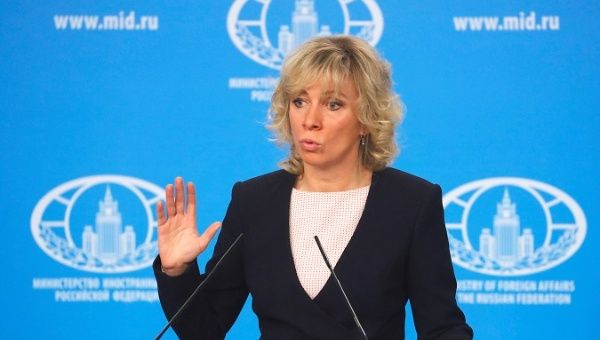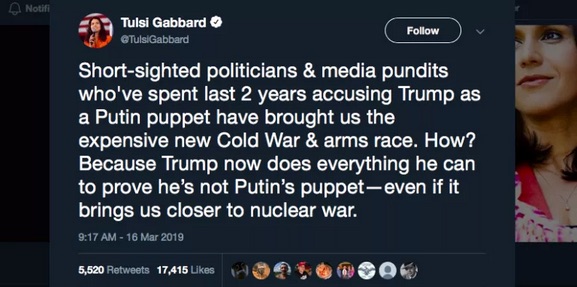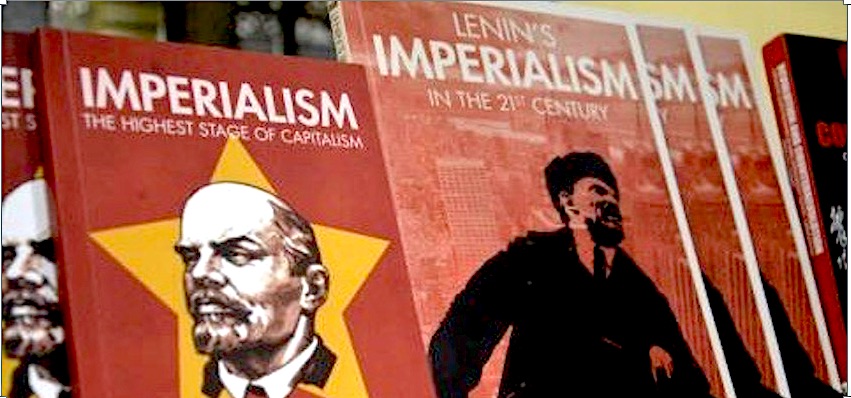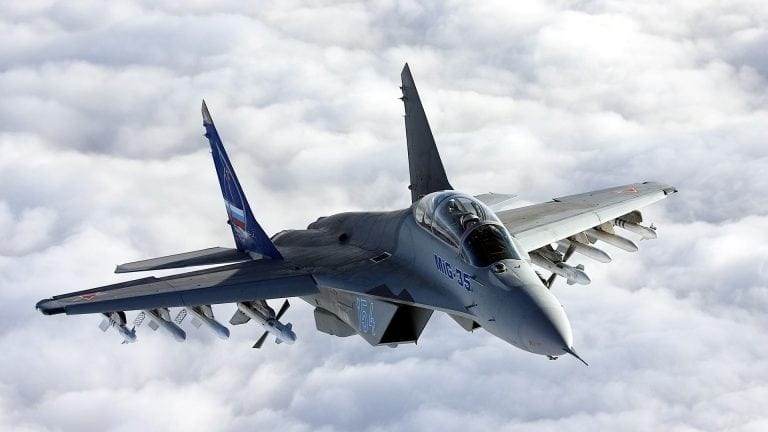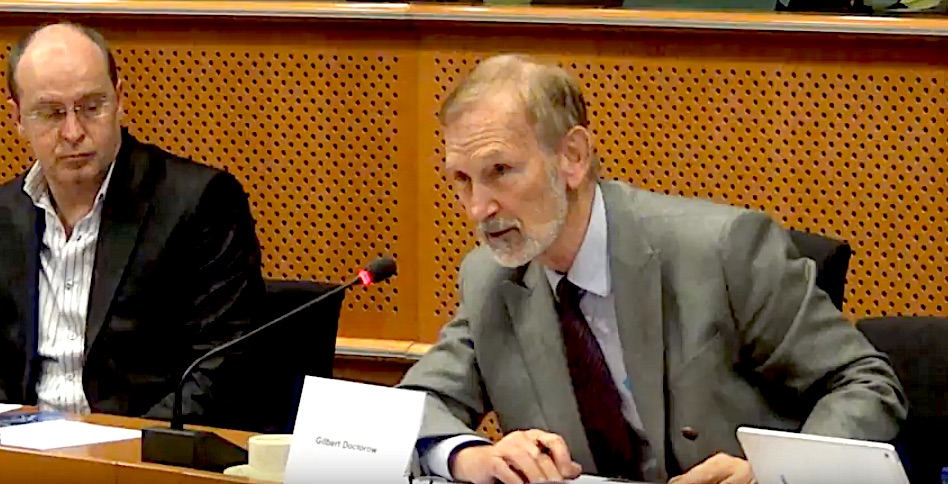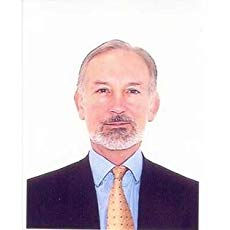Interview with the Russian Ambassador in Lebanon A. Zasypkin for Novaya Gazeta
April 08, 2019
Interview with the Ambassador of Russia in Lebanon A. Zasypkin for Novaya Gazeta, published on March 15, 2019
Translated by Dmitry for The Saker Blog
 Question: Now representatives of Russia on various occasions are talking about the need to facilitate the return of refugees. Lebanon is one of the most involved countries in this problem, with 1.5 million refugees concentrated here. Would you tell us how the process is going on here in Lebanon, and how exactly Russia could contribute to it?
Question: Now representatives of Russia on various occasions are talking about the need to facilitate the return of refugees. Lebanon is one of the most involved countries in this problem, with 1.5 million refugees concentrated here. Would you tell us how the process is going on here in Lebanon, and how exactly Russia could contribute to it?
Answer: Lebanese, like Russia, have in recent years been in favor of the return of Syrian refugees to their homeland under the presence of, of course, appropriate conditions. The opportunity for a serious study of the question was opened when significant territories were freed from terrorists in Syria. That is, the moment has come for qualitative changes for the better, including the massive repatriation of refugees or, more precisely, of temporarily displaced persons.
In July last year, we called for this and began to contribute to the solution of the tasks in this context. Of course, almost all of this concerns efforts in Syria. Infrastructure is being restored there, housing is being built. The Syrian authorities are taking administrative and other measures to facilitate the resettlement of returning refugees. In order to coordinate efforts, the Russian side created a center for their reception, distribution and placement in Damascus. The Interdepartmental Coordination Headquarters meets regularly in Moscow. As for Lebanon, our Embassy cooperates with local authorities within the framework of the Lebanon-Russian Committee.
It must be said that the Lebanese immediately welcomed the Russian initiative. However, it should be borne in mind that the national consensus in Lebanon refers only to the rejection of the prospect of naturalization of Syrian refugees in Lebanon. But as to whether it is necessary to encourage repatriation in the present conditions, there is no unity in the political class. President M.Aoun aims to move towards the realization of this goal. His line enjoys widespread support in parliament and government.
But there is another opinion – that the task of returning refugees, like the reconstruction in Syria, should be postponed until a political settlement of the Syrian conflict is reached. This is the same position that the Western and rich Arab countries of the Persian Gulf adhere to. They remain opponents of the Syrian authorities and seek to show that the situation is still far from normalization.
Whatever it was, but work on repatriation in accordance with all international criteria in the safe areas goes. Logistically, this is ensured by the General Directorate of General Security of Lebanon, which receives appeals from refugees and sends them to the Syrian Security Service.
Question: Do you know about cases when people are denied?
Answer: Yes, there are such cases. For example, if the Syrian security authorities have data on criminal activity within illegal armed groups, then these persons are denied entry because they are subject to arrest. That is, in order not to aggravate the situation, someone should not yet return to the country. I believe that there is common sense. Repatriation should be encouraged, but it must be that everything is under control. It is impossible in one sitting to open all the gateways.
For the future, a lot will probably depend on how the issue of amnesty will evolve. At first, there was nothing at all; now there is an amnesty law for those who evaded military service. And this has opened up more opportunities for returns. In addition, it is important to complete the elimination of the terrorist presence, in particular in Idlib, to restore state sovereignty throughout Syria. This will improve the public climate, strengthen stability in general.
Question: Alexander Sergeevich, we were told that Hezbollah has a completely independent mandate for the return of refugees. Is Hezbollah involved?
Answer: As for the mandate, there is not such a notion. Several parties, including Hezbollah, are trying to help. They are in contact with the refugees, clarify the possibilities of their settlement upon return, make lists with them, and then transfer them to the Lebanese General Security Authority.
Question: And if we deviate a little from the question of the refugees – how do we develop relations with Hezbollah?
Answer: Our approach is determined by the fact that Hezbollah is both a political party and a detachment of resistance to the Israeli occupation. This happened in the 80s in the framework of the Arab-Israeli conflict. In recent years, while maintaining confrontation with Israel, Hezbollah went to war on terrorism in Syria. On the very same takfiri terrorism embodied by the branches of “Al Qaeda” such as al-Nusra, ISIL and the like, against which Russia is fighting. So on the Syrian front, we fight together with one common enemy.
At the same time, it should be noted that, within Lebanon, Hezbollah plays an important stabilizing role, stands for the cooperation of the main parties in parliament and government.
To better understand what is happening now, you need to step back a bit and remember the so-called. “Arab Spring”. It all started with the nomination of democratic slogans, but quickly moved into the stage of armed confrontation. Almost everywhere, Sunni radical groups have come to the fore. This card was played by the West to overthrow those objectionable Arab regimes that they themselves could not reach, unlike, for example, S. Hussein in Iraq or M. Gaddafi in Libya. Syria was in the focus of the conspiracy because of its key role in the region. Since President B. al-Assad pursued a policy in line with the “axis of resistance”, he had to be overthrown at any cost. From here arose a powerful offensive by illegal armed groups. However, this plan was thwarted by the joint efforts of the “axis of resistance” and Russia. They managed to turn the tide. And today there is not much left before the complete liberation of the Syrian territory.
In these circumstances, the United States and its allies moved to a new scenario. They called Iran and Hezbollah the main destabilizing factor, the source of terrorism, began to create a regional bloc against the “axis of resistance”. That is, they turned everything upside down and blamed those who blocked the way to terrorism. That is, for them, the “axis of resistance” is the number one enemy, while the process of Arab-Israeli normalization is proceeding in parallel.
If you look at this situation strategically, you get the following. It is known that the United States, in advancing its projects in all parts of the world, is striving in every possible way to blacken its opponents, to shift to them the responsibility for their own illegal actions. In the Middle East, one of the basic elements of such tactics at this stage is the myth of “Iranian expansion.” They say Iran wants to create its own empire. This “concept” is so strongly promoted that many began to take this statement as something for granted. In fact, the facts are such that the Iranian positions in Iraq, for example, strengthened, after US aggression and their occupation of Iraqi territory led to ruin in all spheres. It was necessary to somehow pull the country out of the abyss, to fight terrorism, in which the Iranians helped the Iraqis. That is, it was a reaction, a response to the destructive actions of the United States.
In Syria, Iran and Hezbollah appeared only at a certain stage of the confrontation, when militants tore up the country, turned the captured areas into terrorist enclaves. It was then that the Syrian authorities turned to Iran, Hezbollah, Russia for help. Now, suddenly, someone says: “Iran must leave as soon as possible.” This, they say, will help stabilize the situation.
But if so, then who will ensure that terrorist groups do not return? Those who supported them all these years? That is, it is proposed to give initiative to the enemies of Syria.
But it will not be so, that’s for sure. Normalization in Syria should go in such a way that there were no disruptions, relapses of exacerbations. In this regard, a necessary element is to ensure the superiority of the Syrian army and its allies. In addition, only the Syrian official authorities can make a decision on the presence of Iran. This is their sovereign right.
The United States, in its own actions, emphasizes sanctions pressure on members of the “axis of resistance”. To this are added the attempts to sow discord within these countries. In Lebanon, we note it all the time.
It is difficult to predict how far the confrontational manifestations promoted by the Americans will go. Broadly speaking, this is a continuation of their concept of “controlled chaos.” But, as experience shows, there is enough power and skills for creating chaos, but they cannot get to manage it. In addition, this concept has a fundamental flaw – the unresolved Palestinian problem, as well as the continuation of the Israeli occupation of part of the territory of Syria and Lebanon. In this regard, the question arises: can the “deal of the century” proposed by President Donald Trump as an option for a final settlement in the Middle East?
I think not, because the data known about it does not allow Palestinians, Arab patriotic forces and the whole “Arab street” to count on this plan.
There is also no doubt that the axis of resistance, including Hezbollah, will be firmly opposed. Even the best friends of the United States among the Arabs will not agree to the transfer of Jerusalem to Israel, the nullification of the problem of Palestinian refugees and the creation of a Palestinian quasi-state.
Question: The fact that Hezbollah is a Lebanese political party on the one hand, and on the other hand an organization that wages war on the territory of a neighboring state, does [it] not contradict the position of the Lebanese state, denoting its clear neutrality in this situation?
Answer: As Lebanese more precisely put it, not neutrality, but a policy of distance from conflict situations in the region. That is, it is necessary to prevent the negative impact of what is happening on Lebanon and not to intervene. This slogan is good for maintaining the priority of internal stability. But it’s impossible to fully implement it on the external arena. On the one hand, some Lebanese went to Syria to fight against the Syrian authorities. Then bandit formations leaked from Syria to Lebanon, but they were blocked in the mountains, and then destroyed or driven away. In turn, Hezbollah took part in the battles on the side of the Syrian regular army.
Hezbollah’s decision, like the Russian’s similar decision, was dictated by the threatening situation in Syria. If terrorists came to power there, the country would be destroyed, lawlessness would follow the example of Libya. In that case, the war would move to Lebanon. Gangs had a plan to reach through the north of Lebanon to the Mediterranean Sea. They would raise a terrorist wave, trying to stir up interfaith confusion on Lebanese soil. But all this did not happen, so it is necessary to recognize the fact that the “axis of resistance” and Russia saved not only Syria, but also Lebanon.
Question: But now great hopes are being placed on Russia, including in protecting the current Syrian regime from the influence of Iran.
Answer: I will say frankly that the Syrian government need not be protected from the influence of Iran. There is a strong and unshakable alliance between Damascus, Tehran and Hezbollah. As such, it will remain in the future. A view exists that the seemingly emerging restoration of Syria’s ties with Arab countries will lead to a weakening of Syrian-Iranian interaction and coordination, but that is an illusion. Syria was and will remain the link of the “axis of resistance”. Now we should not think about the alleged difficulties with the Iranians, but about the complete elimination of the terrorist threat and the restoration of the sovereignty of the Syrian state throughout the territory, which foresees, first of all, the withdrawal of the illegitimate foreign military, primarily the Americans.
Question: For Russia, there is no problem because it actually appeared between Iran and Israel, between two allies, whose interests are simply diametrically opposed?
Answer: Leaving aside the terminology about the allies, I want to say essentially... There is no contradiction for Russia, since we, along with Iran and Hezbollah, are helping Syria in the fight against terrorism, and with Israel have agreed to avoid airborne clashes and other incidents. So these are different things. If we talk about the existing for many years, the confrontation of Israel with the “axis of resistance”, it initially lay in the wake of the Arab-Israeli conflict. As such, in essence, it remains, although recently the “rules of the game” on this front have become tougher. At the same time, it should be noted that no one is interested in inciting a major conflict, as a result there would be huge casualties on both sides. It is particularly necessary to emphasize that it is precisely this balance of mutual deterrence that determines the situation in the “blue line” zone between Israel and Lebanon. On the Lebanese side, Hezbollah’s missile potential is of the utmost importance.
Russia, on the other hand, believes that it is necessary to work towards improving the situation in the region and restarting the peace process in order to achieve a comprehensive Arab-Israeli settlement on an internationally recognized basis, including the UN resolutions and the 2002 Arab peace initiative.
Question: In the international arena, there are often reproaches to Russia – that it supports Assad and makes efforts to ensure that he remains the Syrian president. And what is actually the position of our country on the future of the Syrian leadership?
Answer: It would be strange if it were not reproached. Only not in the “international arena”, but in the ruling circles of the West and their allies in the region, and in the relevant media. In general, they wanted to achieve the overthrow of President Assad. But their plans were thwarted largely by the efforts of Russia. Moreover, strictly speaking, we took the side of the legitimate authorities, helped repel the onslaught of terrorists and save the state.
Speaking about responsibility, let us ask ourselves the question: should President Assad have to give way to the opposition? Leaving aside the issue of legality from the point of view of observance of the constitution, let’s face it, then the Muslim Brotherhood would come to power, which indeed have become the basis of hundreds of militant groups funded by the sponsors of terrorism. Thousands of takfirists from all over the world have joined them. So President Assad has shown a statesman’s approach, not capitulating to extremists.
As for the future, the Russian position from the very beginning and still is the same – the Syrian people must decide without external interference. This is in fact a universal approach, consistent with international law. Finally, let’s look at the perspective. First, it is impossible to imagine that Syria, having defeated terrorism, will change the political course in exchange for grants and loans. Secondly, the question of the president is that he should play the role of a guarantor of state preservation. President Assad is such a guarantor in the eyes of millions of Syrians. Can there be an alternative in this regard – it is up to the Syrian people to decide at elections, and not up to external forces.
The best way to get around the internet censors and make sure you see the stuff we publish is to subscribe to the mailing list for our website, which will get you an email notification for everything we publish.
Original source: http://www.mid.ru/ru/foreign_policy/international_safety/regprla/-/asset_publisher/YCxLFJnKuD1W/content/id/3571159

THIS WORK IS LICENSED UNDER A Creative Commons Attribution-NonCommercial 4.0 International License



